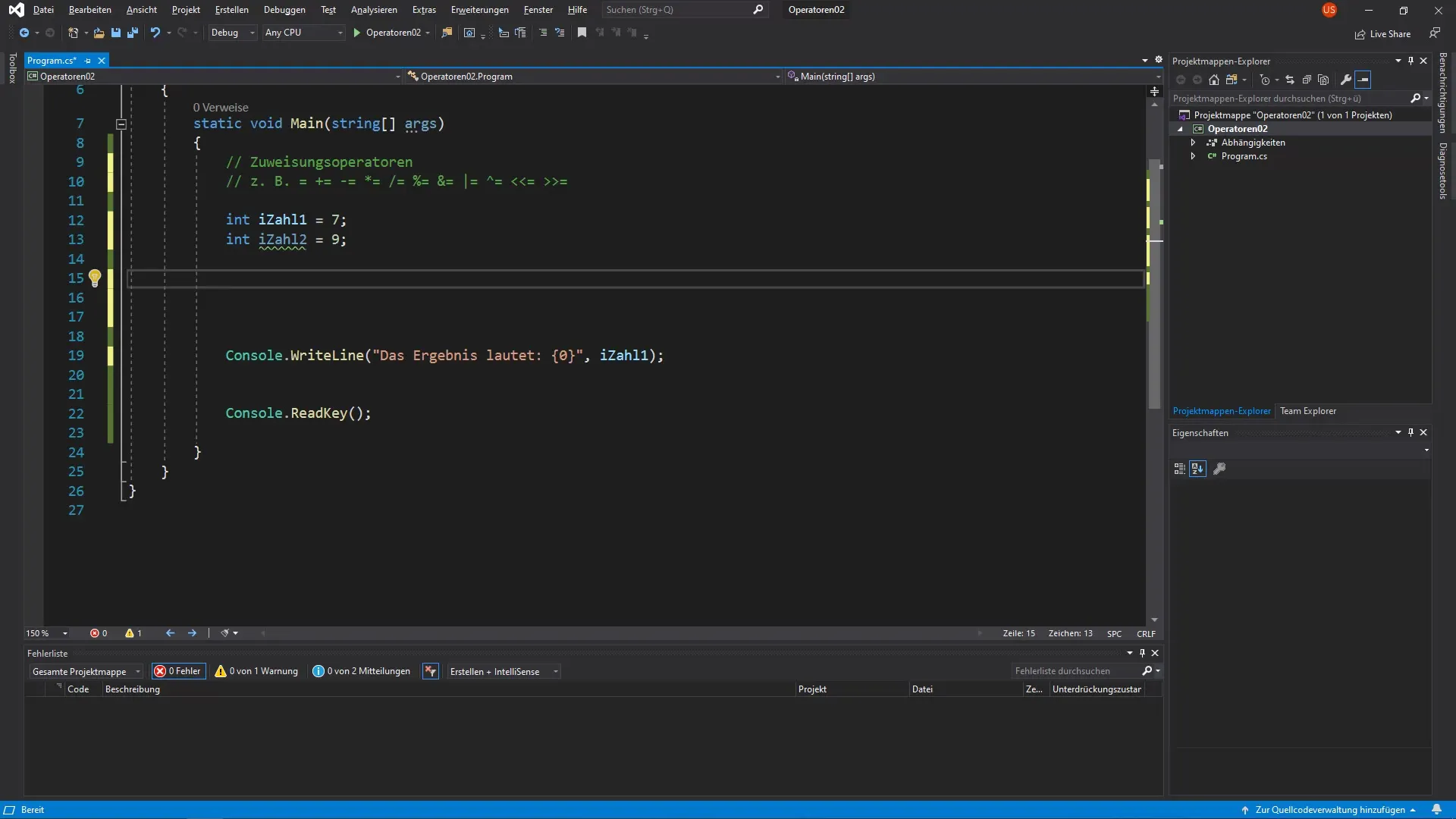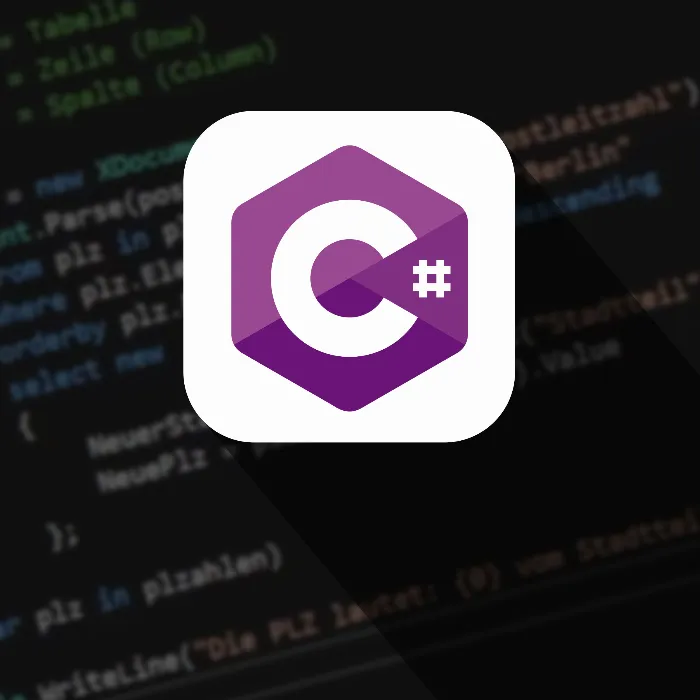In the context of C# programming, assignment operators are essential tools for assigning or changing variable values. They enable simplified and more efficient programming by shortening the syntax and facilitating the understanding of the code. In this guide, you will learn about the different types of assignment operators, their application, and also key differences from traditional assignment. Let's dive straight into the details.
Main insights
- Assignment operators allow for a shortened syntax in C#.
- The equals sign is the exception among assignment operators.
- Multiple assignment operations can occur in one line, making the code more efficient.
Basics of Assignment Operators
At the beginning, it is important to understand the fundamental function of an assignment operator. The assignment operator, typically = in C#, ensures that the value of one variable is transferred to another.

For example, if you have the variable Number1 with the value 7 and Number2 with 9, and you write Number1 = Number2, then the content of Number2 (which is 9) is stored in Number1. This means that Number1 now contains the value 9, while Number2 remains 9.
Application of Assignment Operators
Standard assignment in programming often looks a bit longer. What does it look like when you want to add the two numbers, for example?
In this case, you would add the values 7 and 9 and store the result in the variable Result.
Using the Assignment Operator
However, by using the assignment operator, you can shorten this step and make it more efficient.
Here, the sum of Number1 and Number2 is directly stored back in Number1. When we run the code, you'll get the same result of 18.
Other Assignment Operators
The assignment operator += is not the only one. There are a variety of other assignment operations you can use to perform mathematical calculations even faster and more effectively:
- -= for subtraction
- *= for multiplication
- /= for division
If Number1 was initially 9 and Number2 was 9, the result of Number1 will now be 81.
Conclusion
Assignment operators are a fundamental part of C# programming. They help to make code not only shorter but also clearer and more maintainable. Use the various assignment operators to optimize your programming style. Remember that the equals sign is a special exception, as it is the shortest syntax for assignment. Experiment with different assignments to get a feel for the flexibility and various options available.
Summary - Assignment Operators in C# - A Comprehensive Guide
Assignment operators are important for effective C# programming. They allow you to assign, use, and simplify code quickly and efficiently.
Frequently Asked Questions
What are assignment operators?Assignment operators are used to assign values to variables in a shortened syntax.
How does the assignment operator work?It transfers the value of a right variable to a left variable.
Can I combine assignment operators?Yes, it is possible to make multiple assignments in one line, which makes the code shorter.
Why should I use assignment operators?They make the code shorter and more readable, which simplifies maintenance.
Does the equals sign affect the assignment?Yes, the equals sign is the exception as it behaves differently from other assignment operators.


